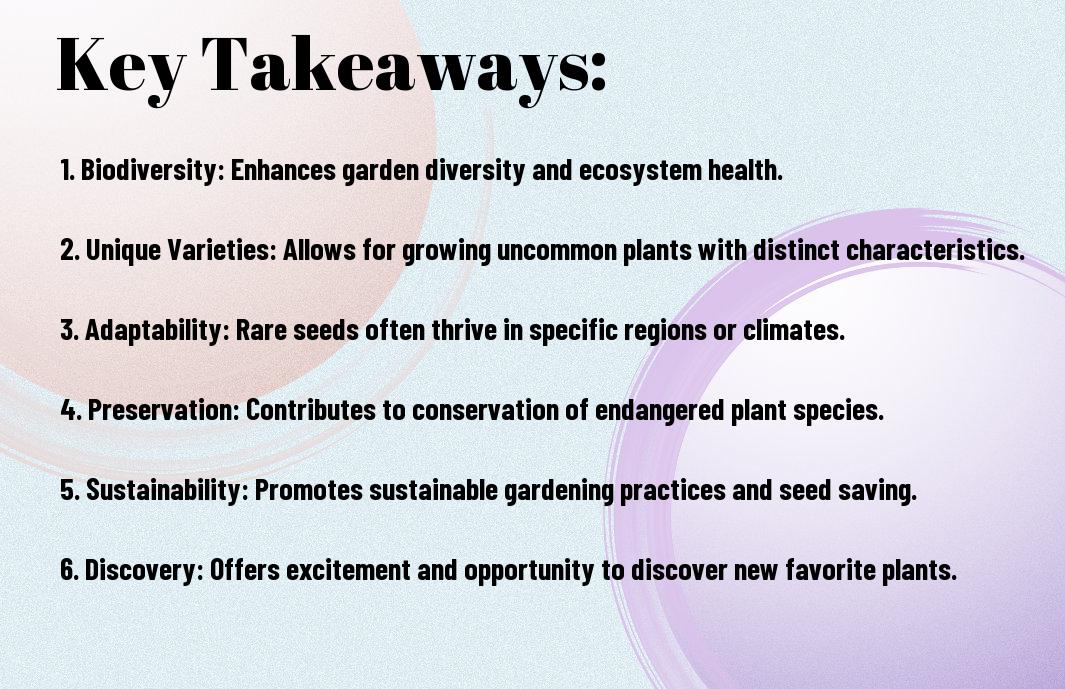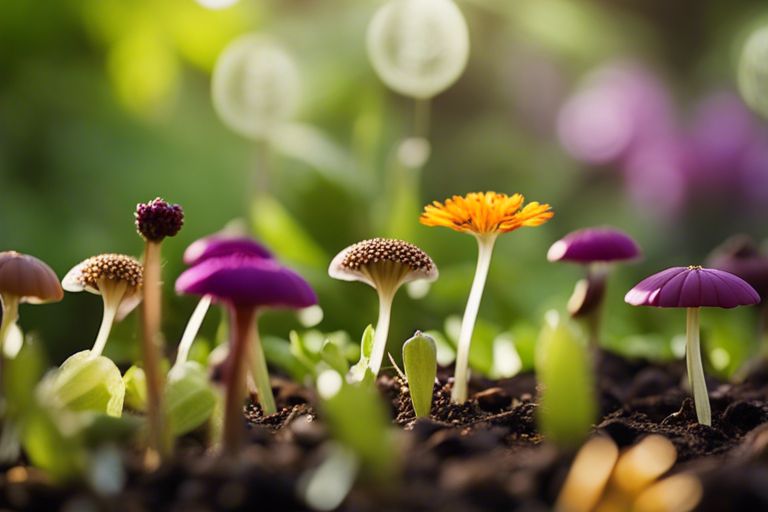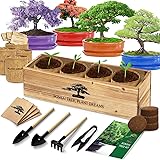
Zettum Patio Loveseat Cover 60 Inch - 600D Outdoor Couch Cover Furniture Sofa Cover Waterproof Heavy Duty, 2-Seater Bench Cover for Outside Sofa, Loveseat, Couch, Bench and Glider - 60 x 36 x 33 Inch
$29.99 (as of December 22, 2024 22:10 GMT +00:00 - More infoProduct prices and availability are accurate as of the date/time indicated and are subject to change. Any price and availability information displayed on [relevant Amazon Site(s), as applicable] at the time of purchase will apply to the purchase of this product.)4-in-1 Soil Moisture Meter Digital PH Meter/Soil Moisture/Plant Temperature/Sunlight Intensity, Backlight LCD Display, Soil Test Meter for Garden, Lawn, Plant Care, Farm and Indoor Outdoor Plants
$25.98 (as of December 22, 2024 22:10 GMT +00:00 - More infoProduct prices and availability are accurate as of the date/time indicated and are subject to change. Any price and availability information displayed on [relevant Amazon Site(s), as applicable] at the time of purchase will apply to the purchase of this product.)Bonsai Tree Kit, Bonsai Starter Kit with 4 Bonsai Tree Seeds, Tools & Planters, Bonsai Tree Live Plants Indoor, Gardening Gifts for Women Men Mom Father Plant Lover, Unique Christmas Gifts
$35.99 (as of December 22, 2024 22:10 GMT +00:00 - More infoProduct prices and availability are accurate as of the date/time indicated and are subject to change. Any price and availability information displayed on [relevant Amazon Site(s), as applicable] at the time of purchase will apply to the purchase of this product.)Ambient Weather WS-2000 Smart Weather Station with WiFi Remote Monitoring and Alerts
$188.99 (as of December 22, 2024 22:10 GMT +00:00 - More infoProduct prices and availability are accurate as of the date/time indicated and are subject to change. Any price and availability information displayed on [relevant Amazon Site(s), as applicable] at the time of purchase will apply to the purchase of this product.)Meat Shredder Claws - BBQ Smoker Accessories - Pulled Pork Tool - White Elephant Grilling Gifts for Men-Black
(as of December 22, 2024 08:26 GMT +00:00 - More infoProduct prices and availability are accurate as of the date/time indicated and are subject to change. Any price and availability information displayed on [relevant Amazon Site(s), as applicable] at the time of purchase will apply to the purchase of this product.)Gardeners, have you ever considered the advantages of incorporating rare seeds into your planting routine? Beyond adding unique and exotic varieties to your garden, rare seeds offer a plethora of benefits that can enhance the diversity, resilience, and beauty of your garden. From preserving biodiversity to adapting to specific growing conditions, the incorporation of rare seeds can truly elevate your gardening experience. In this blog post, we will research into the numerous advantages of including rare seeds in your garden planting endeavors.
Key Takeaways:
- Diversify your garden: Incorporating rare seeds into your garden planting adds unique and uncommon varieties, diversifying your garden and making it stand out.
- Promote biodiversity: Rare seeds help promote biodiversity by preserving plant species that are not commonly found in commercial settings, contributing to the conservation of genetic diversity.
- Enhance resilience: Planting rare seeds can increase the resilience of your garden against pests, diseases, and climate changes, as these unique varieties may have different traits that make them more adaptable.

Nutritional Advantages
Any garden enthusiast knows the joy of planting and nurturing rare seeds to see unique and exciting plants thrive in their garden. Beyond the visual appeal, incorporating rare seeds into your garden planting can also offer significant nutritional advantages.
Unique Nutrient Profiles of Rare Plants
An exciting aspect of incorporating rare seeds into your garden planting is the opportunity to benefit from the unique nutrient profiles of these plants. Rare plants often contain a diverse range of vitamins, minerals, and antioxidants that may not be as readily available in more common garden varieties. By adding these rare plants to your garden, you can introduce a wider array of nutrients into your diet, helping to support overall health and well-being.
Additionally, the cultivation of rare plants can provide a fun and engaging way to explore new flavors and culinary experiences. These plants may offer unique tastes and textures that can add excitement to your meals while also providing imperative nutrients that are beneficial for your health.
Enhancing Diet Diversity
To further enhance the nutritional benefits of your garden, incorporating rare seeds can help enhance the diversity of your diet. A diverse diet that includes a variety of fruits, vegetables, and herbs is imperative for ensuring that you are receiving a wide range of nutrients necessary for optimal health. By growing rare plants in your garden, you can introduce new and different vitamins, minerals, and phytochemicals into your meals, promoting a well-rounded and balanced diet.
This increased diet diversity can also help prevent nutrient deficiencies and support overall health and vitality. Experimenting with rare plants in your garden can inspire creativity in the kitchen and encourage you to try new recipes and cooking techniques, making mealtime a more exciting and nutritious experience.

Ecological Benefits
Supporting Local Ecosystems with Rare Species
Ecosystems thrive when there is biodiversity, and incorporating rare seeds into your garden planting can play a crucial role in supporting local ecosystems. Rare species often have unique characteristics that are beneficial to the environment, such as being more resilient to pests and diseases or having special adaptations to local growing conditions.
By planting rare seeds, you are helping to conserve and preserve these unique plant species, which in turn can provide food and habitat for a variety of wildlife. This can help restore the balance in the ecosystem and promote a healthier environment for all living organisms.
Rare Seeds and Pollinator Attraction
With the decline in pollinator populations worldwide, it is more important than ever to provide them with the resources they need to thrive. Incorporating rare seeds into your garden planting can attract a diverse range of pollinators, including bees, butterflies, and birds, due to the unique and often more nutritious nectar and pollen that rare species offer.
For instance, planting rare wildflowers such as bee balm or butterfly weed can attract specific pollinators that are important for the reproduction of these plants. This symbiotic relationship not only benefits the rare species themselves but also helps maintain a healthy and balanced ecosystem.
Cultural and Aesthetic Values
Many gardeners are drawn to the unique cultural and aesthetic values that rare seeds bring to their gardens. These seeds offer a connection to horticultural heritage and provide opportunities for creative and diverse garden designs.
Preserving Horticultural Heritage
On a deeper level, incorporating rare seeds into your garden planting allows you to play a crucial role in preserving horticultural heritage. Many rare seeds come from heirloom varieties that have been passed down through generations, often with significant cultural significance attached to them. By growing these rare seeds, you are helping to ensure that these distinctive plant varieties are not lost to time.
Preserving horticultural heritage through rare seeds also fosters biodiversity in your garden and helps to maintain a healthy ecosystem. These plants often have unique traits that make them more resilient to pests and diseases, which can benefit not only your garden but the broader environment as well.
Aesthetic Diversity in Garden Design
Diversity in garden design is key to creating visually stunning and dynamic outdoor spaces. By incorporating rare seeds with unique colors, shapes, and sizes into your garden, you can elevate the aesthetic appeal of your landscape. These rare plants can serve as focal points or add intriguing texture and contrast to your overall garden design.
Garden designers and enthusiasts often seek out rare seeds to experiment with new and exciting combinations that traditional garden centers may not offer. The result is a garden that is not only aesthetically pleasing but also reflects your individual style and creativity.
Agriculture and Climate Resilience
Adapting to Climate Change with Rare Varieties
After years of experiencing the adverse effects of climate change on agriculture, it has become increasingly important to adopt measures that enhance resilience in farming practices. One effective way to address these challenges is by incorporating rare seeds into garden planting. These unique varieties have often developed natural resistance to specific climate conditions, making them valuable assets in the face of changing weather patterns.
An important aspect of rare seeds is their ability to adapt to varying climate conditions, such as drought, excessive rainfall, or temperature fluctuations. By cultivating rare varieties in your garden, you are not only diversifying your crops but also increasing the chances of a successful harvest despite unpredictable weather events. This adaptability plays a crucial role in ensuring food security and sustaining agricultural production in the long run.
Contribution to Sustainable Agriculture Practices
Climate resilience is at the core of sustainable agriculture practices, and incorporating rare seeds into your garden planting can significantly contribute to this goal. These seeds often require less water, pesticides, and fertilizers compared to conventional varieties, making them environmentally friendly choices for cultivation. Additionally, the genetic diversity present in rare seeds can help build healthier and more robust ecosystems within your garden.
With the increasing emphasis on sustainable agriculture, rare seeds offer a viable solution for farmers and gardeners looking to minimize their environmental impact while maximizing crop productivity. Their unique traits not only support climate resilience but also promote biodiversity and soil health, ultimately leading to more resilient and sustainable food systems.
Conclusion
Considering all points, it is clear that incorporating rare seeds into your garden planting can offer a range of benefits. From preserving biodiversity to discovering unique and resilient plant varieties, rare seeds can enhance the beauty and health of your garden. Additionally, growing rare seeds can help support sustainable agriculture practices and protect endangered plant species. By cultivating rare seeds in your garden, you not only contribute to environmental conservation efforts but also create a more diverse and interesting landscape for yourself and your community to enjoy.










